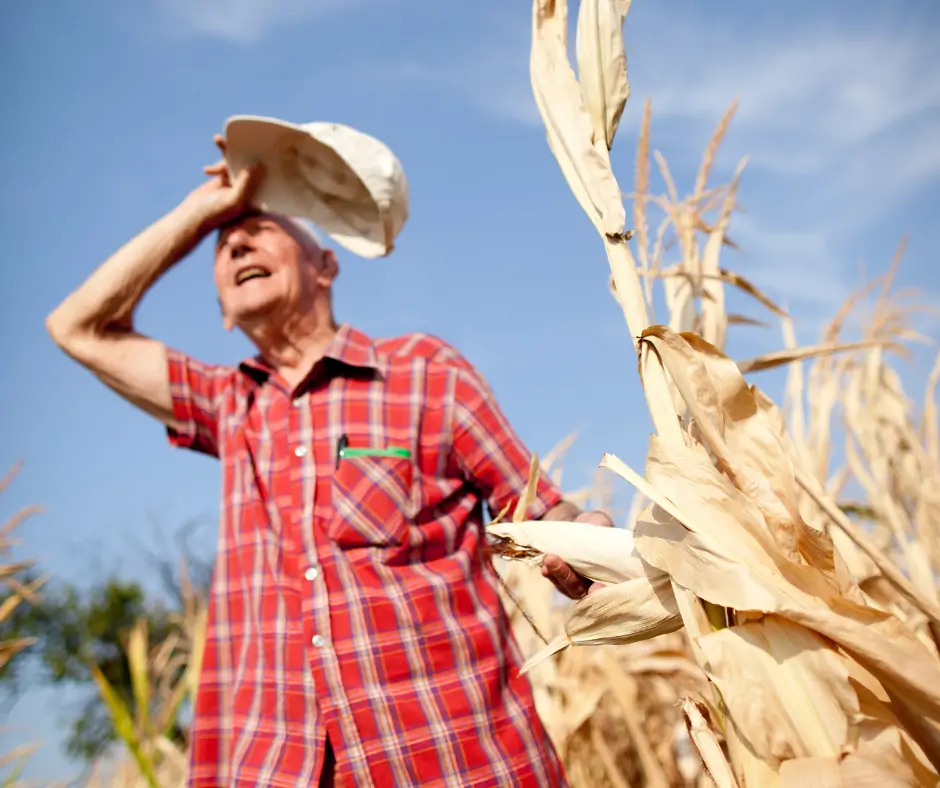
Farmers in the Free State are urgently calling upon the government to recognize the ongoing drought as a disaster, hoping for some form of relief to alleviate the extensive losses they’ve suffered during this parched season.
The farming community is deeply concerned about the severe repercussions of the drought, which could potentially jeopardize food security. With the already steep prices of agricultural commodities, farmers dread that the prolonged drought will only exacerbate the situation, leading to further increases in prices.
Many farmers are apprehensive that they may not even recoup a fraction of their investments.
Zimasa Leputla, spokesperson for the Free State Department of Agriculture and Rural Development, acknowledges the plight of farmers, stating, “Our department is fully cognizant of the prevailing drought situation affecting farmers. We have engaged with various agricultural unions and continue to hold discussions with representatives of affected farmers. Subsequently, our department will conduct a comprehensive assessment to ascertain the extent of losses incurred by farmers. Once this assessment is complete, we will devise strategies to provide assistance to these farmers.”
The scorching heat and lack of adequate irrigation have significantly compromised crop yields, resulting in substantial losses for farmers.
Farmers are expressing their distress over the magnitude of their losses.
“This means that we’ll have to repay all the expenses incurred for land activation and planting. But where will we find the money? It’s a daunting prospect,” laments one farmer.
“We set certain yield targets to cover our input costs and ensure a profit. However, this drought has kept input costs high while severely impacting yields. Consequently, we won’t achieve the turnover we anticipated from our crops,” explains another farmer.
The sentiment among farmers is one of frustration and uncertainty as they grapple with the financial ramifications of the drought.
In the vast agricultural landscape of the Free State, where farming sustains livelihoods and feeds communities, the toll of the ongoing drought is palpable. Fields that should be lush with crops are instead parched and barren, echoing the struggles of farmers trying to cope with the relentless dry spell.
For these farmers, agriculture isn’t just a business; it’s a way of life. They invest not only money but also their time, energy, and hopes into each crop they cultivate. However, the harsh reality of the drought has shattered those hopes, leaving behind a landscape of desolation and despair.
As they watch their crops wither under the scorching sun, farmers are confronted with the grim truth that their hard work may not yield the returns they desperately need. The lack of irrigation exacerbates their plight, leaving them at the mercy of unpredictable weather patterns and diminishing water sources.
Amidst this adversity, the call for government intervention grows louder. Farmers are pleading for assistance, hoping for some form of relief to alleviate their financial burdens. They understand that declaring the drought a disaster is not just a matter of semantics; it’s a crucial step towards accessing much-needed support and resources.
The fear of food insecurity looms large over the farming community. With crop yields dwindling and prices skyrocketing, there’s a genuine concern that access to nutritious food may become increasingly scarce. This isn’t just a problem for farmers; it’s a threat to the well-being of the entire population.
In the face of such adversity, resilience shines through. Despite the challenges, farmers are determined to persevere, seeking innovative solutions to mitigate the impact of the drought on their livelihoods. From exploring alternative irrigation methods to diversifying their crops, they refuse to let the drought dictate their fate.
Yet, the road ahead remains fraught with uncertainty. Without timely intervention and support from the government, the future looks bleak for many farmers in the Free State. The specter of financial ruin looms large, casting a shadow over the once-vibrant agricultural landscape.
But amidst the hardships, there’s also a glimmer of hope. As communities come together to support one another and farmers refuse to surrender to despair, there’s a sense that even in the face of adversity, resilience prevails. And perhaps, it’s this resilience that will ultimately see them through the darkest of times, towards a future where fields once again flourish, and hope springs eternal.
This website uses cookies.